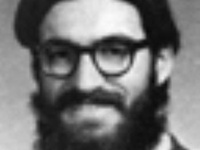In 1986, Allen entered Columbia’s Ph.D. program to study a slew of fields—from ethics to the philosophy of language—and found himself teaching again. This time he became a preceptor for Columbia’s famous “Great Books” course, where he taught eager undergraduates about philosophers like Aristotle, Locke and Hegel.
That latter German’s approach became especially influential in Allen’s teaching and his own philosophical musing, which he says is always about looking for new perspectives.
“I love the scope of what [Hegel] attempts,” he enthuses. “He puts the focus on what it is to experience being in a particular order, and goes inside the perspective of each position, trying to trace out the contradictions and paradoxes and difficulties.”
Hegel’s notions of development through struggle also played a key part in forming his philosophical mind-set. “If we have a six-hour debate about world history, our positions will have evolved through the encounter,” he explains. “The position you have at 10 o’clock is a result of the flaws you had at nine o’clock.”
With a new Ph.D. under his belt (he graduated from Columbia in 2000), a passion for thoughtful conversation and a bit of career lust, Allen decided to enter the marketplace—of ideas. Last fall, Allen set up a table in Union Square’s fruit market and, hoping to snag future paying clients, offered free one-on-one philosophical consultations to anyone who had a pressing existential concern.
For five to 30 minutes at a time, Allen—a certified “philosophical counselor”—fielded inquiries about the meaning of life, the value of non-violent political action, how to avoid being bored and the age-old stumpers: “Who Made God?” “What is the central philosophical question of our time?” and “Why are people in New York City so low in energy and in a rut?” It was a mix of Hegel, Socrates and Lucy from the “Peanuts” comic strip, who sold Charlie Brown pearls of wisdom for five cents apiece.
But in real life, Allen learned, such therapeutic philosophical guidance, even in the harried world of post-Sept. 11 New York, can’t quite pay the bills. Still, while it won’t work as a career—the table led to only a couple of paying clients—Allen hopes to pursue his “Client-Centered Philosophical Inquiry” as a side project through his website, www.client-centered.com. As the name suggests, Allen is hoping to reemphasize that his work is not about offering answers, but merely helping to look for them.
“The philosophy table idea could be seen as arrogant,” says Allen, who lacks the slightest trace of self-importance. “What nudges it back to more humble orientation is that someone is bringing a complicated position and the two of us work on his puzzle together.”
“What’s To Come For Me?”
As for Allen’s own puzzle—that is, what to do next—at the age of 46, he is starting to rethink his wait-and-see approach. Since abandoning his notion of the “ideal relationship” a couple of years ago, Allen says his own relationship with his wife, Eileen, has been “wonderful.” Now he wonders if abandoning the idea of the “ideal career” might be just as good.
“Great relationships are built, not found,” he notes. “Perhaps one should not be looking for a career role, that will suit one’s current identity as if it’s a pre-ordained match, but rather try to work with a career and build it.”
Now Allen’s rethinking his own fear of specialization. Next month, he’ll start working for a New York hedge fund in its strategic growth department.
“I’ve joked with friends that I’m going through a reverse mid-life crisis. I’ve been thinking about the meaning of life for 20 years, and now I want a flannel suit and a corporate job.”
But he won’t stop giving advice. Of course, for newly-graduating seniors trying to decide on a career, Allen isn’t totally sure what to say.
“One can always reexamine the balance” between intellectual satisfaction and practical need, he says. “You can always say, ‘For the next 12 months I’m going to go in the exploratory, impractical, let-a-hundred-flowers-bloom direction. And then you can try something else.”
—Staff writer Alex L. Pasternack can be reached at apastern@fas.harvard.edu.









